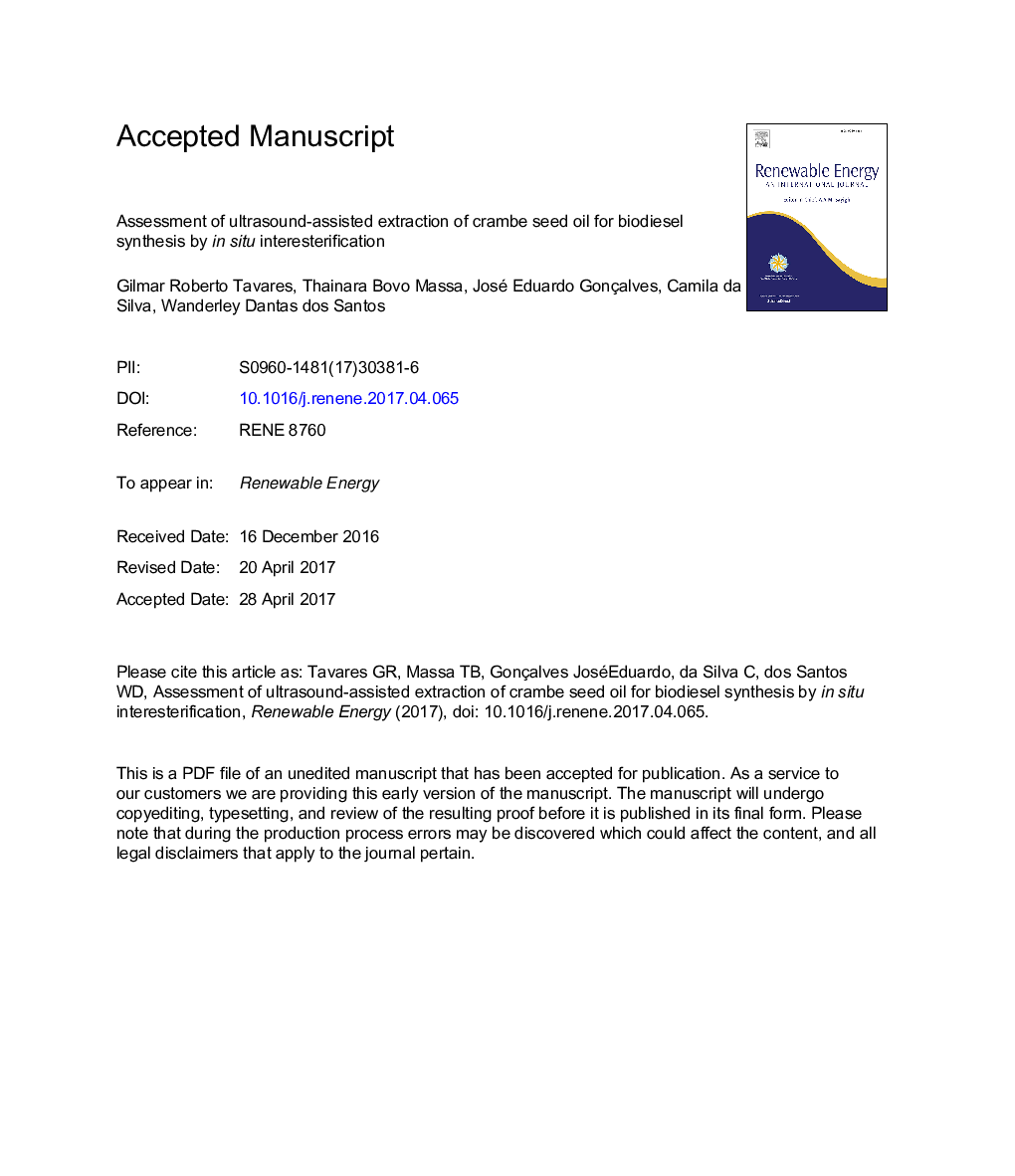| Article ID | Journal | Published Year | Pages | File Type |
|---|---|---|---|---|
| 4926340 | Renewable Energy | 2017 | 34 Pages |
Abstract
In this study, the effectiveness of the ultrasound-assisted extraction (UAE) of crambe seed oil was evaluated with the aim of biodiesel synthesis by in situ interesterification. An experimental design was applied, using a mixture of n-hexane and methyl acetate as the solvent, to evaluate the effect of the process variables and determine the conditions that maximize the removal of oil from the seeds. The results indicated that the extraction time and temperature have a greater influence on the oil extraction than the solvent:seed ratio (p < 0.05). The extraction carried out at 60 °C using a solvent to seed ratio of 10 (mL gâ1) for 90 min provided the maximum oil yield (â¼37%), representing â¼92% of the yield obtained by the conventional method and a 20% increase compared with the yield obtained without ultrasound. The fatty acids compositions of oils obtained by UAE and conventional extraction were similar (p > 0.05), showing a predominance of erucic, oleic and linoleic acids, which accounted for â¼86.5% of the oil composition. The water and free fatty acids contents indicate that the oils obtained cannot be processed by the conventional method using alkaline homogeneous catalysis for the production of biodiesel.
Keywords
Related Topics
Physical Sciences and Engineering
Energy
Renewable Energy, Sustainability and the Environment
Authors
Gilmar Roberto Tavares, Thainara Bovo Massa, José Eduardo Gonçalves, Camila da Silva, Wanderley Dantas dos Santos,
